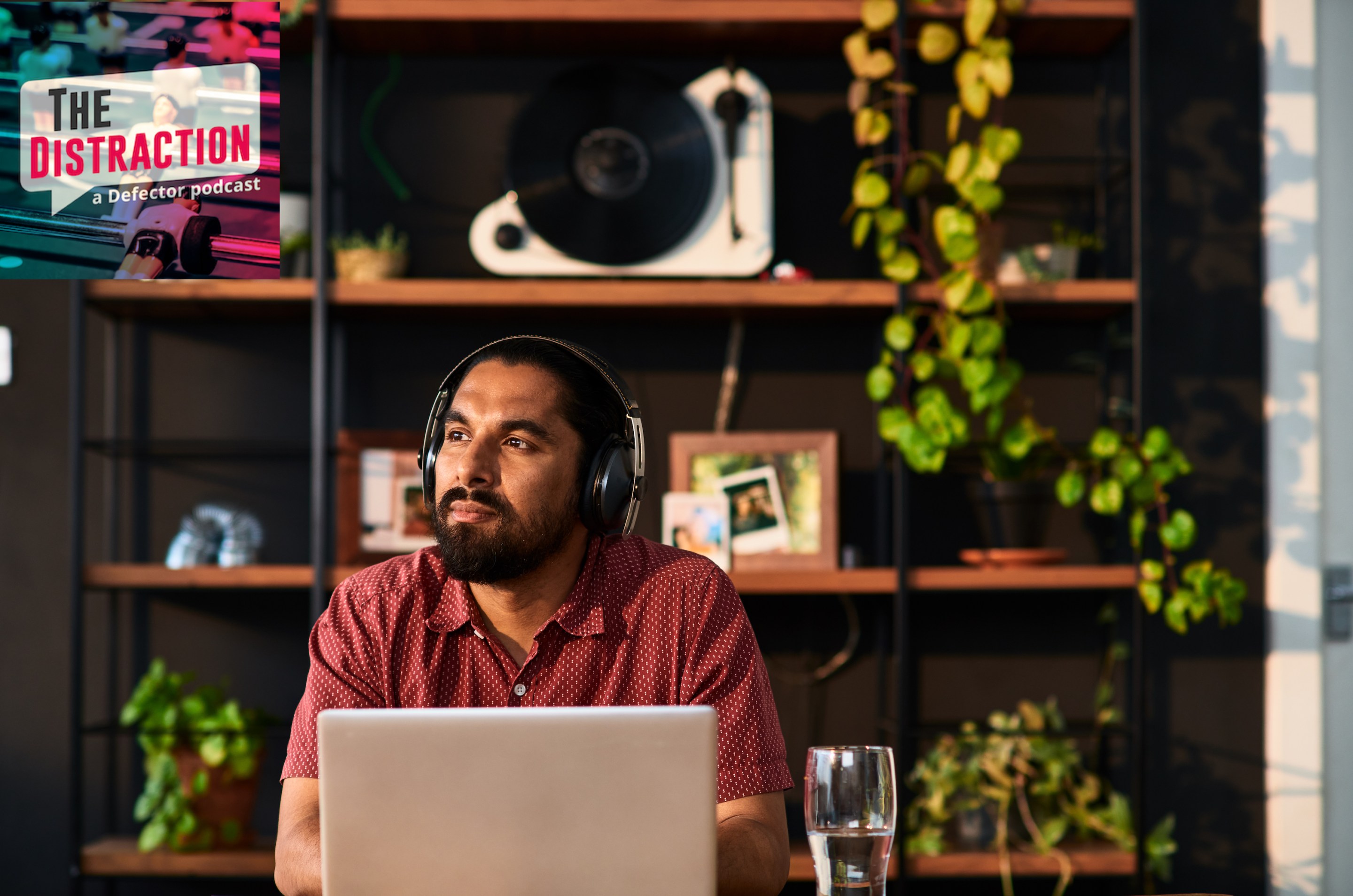Instead of beginning this post with my usual stammering apology and half-tanked tap dance routine, I will start near the end. After Drew talked about his quest to find the largest and goofiest possible hat to wear on the beach, and after we talked to our own in-house superproducer Alex Sujong Laughlin about the freewheeling past, uneasy present, and significantly uneasier future of podcasting, and after some other stuff but shortly before a typically piquant Funbag question about pooping outdoors, we talked about what podcasts we listened to before "listening to podcasts" became a normal part of everyday life. That time was not quite as long ago as it feels, although it is not just the signature Time Dilation Experience of being online that makes it feel so long ago. It was in that moment, while listening to the (very interesting, very different) answers from Alex and Drew, that I realized I was 1) old enough to remember how wild and full of promise that moment in online history felt, and 2) just plain old.
I never really go too long without being reminded of the last bit, to be fair. But much of what I found so illuminating and interesting and often infuriating about the broader conversation about podcasts and podcasting with Alex—who has worked in the field for some time, is currently on the juggernaut Normal Gossip tour, and recently wrote incisively about the collapse of Gimlet Media—was how familiar it all felt. Not just the sense of having experienced some startlingly recent and ever more decisively vanished renaissance, but the reason that it all feels so impossible just a few years after so much seemed so possible. All of which is to say that while we talked about Gimlet, and the ways that both the art and business of podcasting have grown and grown up, there is also a great deal of discussion about The Structural Forces At Play in all of this, and how they are currently steering this industry in the same direction that those forces tend to steer every industry.
All of which sounds kind of gloomy, and I guess actually is kind of gloomy in the way that any consideration of what venture capital–captured industries look like in this moment would inherently be, but this is also a pretty fizzy listen despite all that. A lot of that is thanks to Alex, who is a delightful conversationalist and exceedingly knowledgeable and farsighted about this stuff. But also the end of Gimlet and the era it dominated is not the same thing as the end of podcasts: not the ending of the world, as David Byrne once sang, only the closing of a discotheque. The constellations of creative people and small businesses who want to do this stuff and don't want to have to make money in the old ways or take money from the same old members of the vampire albatross community are still going to do what they want to do, and will hopefully support each other all the more given how clear it is who and what they can and cannot trust.
From there, we were on to the sillier stuff if never quite off of podcasting. A discussion of Lance Armstrong and his powerfully inessential new podcast opened onto a conversation about the awful, stagnant ubiquity of Just Asking Questions as a rhetorical and political gambit. In the interest of full disclosure, I should mention that I did a Jay Leno voice in that part. We remembered some podcasts, with special attention (from Drew) to Ricky Gervais's last funny project and (from Alex) the pathbreaking George W. Bush–era podcast of Australian musician Ben Lee; in lieu of contributing anything here, I got to mention one of my all-time favorite bad famous person tweets. The Funbag was uniquely astringent this week, with the aforementioned consideration of pooping out of doors sharing space with a consideration of whether meaningful political engagement with creeping tech enshittification is possible in these United States. I wouldn't go so far as to say that it's a representation of all the promise of podcasting as a form, if I'm being honest. But it's a podcast to remember, at least.
If you would like to subscribe to The Distraction, you can do that at Apple Podcasts, Spotify, Stitcher, or wherever else you might get your podcasts. Feel free to discuss this week's episode in the comments below. Thank you as always for your support.






